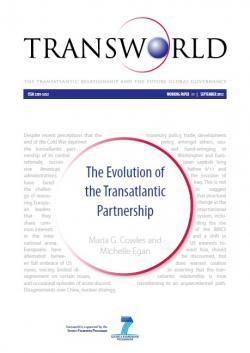The Evolution of the Transatlantic Partnership
Despite recent perceptions that the end of the Cold War deprived the transatlantic partnership of its central rationale, successive American administrations have faced the challenge of reassuring European leaders that they share common interests in the international arena. Europeans have alternated between full embrace of US views, voicing limited disagreement on certain issues, and occasional episodes of acute discord. Disagreements over China, nuclear strategy, monetary policy, trade, development policy, amongst others, caused hand-wringing in Washington and European capitals long before 9/11 and the invasion of Iraq. This is not to suggest that structural change in the international system, including the rise of the BRICS and a shift in US interests toward Asia, should be discounted, but does warrant caution in asserting that the transatlantic relationship is now transitioning to an unprecedented path.
Documento prodotto nell'ambito del progetto IAI Transworld.
-
Dati bibliografici
Roma, Istituto affari internazionali, settembre 2012, 28 p. -
Numero
3
Introduction
1. The Creation of the Atlantic Alliance: 1945-1950
2. The 1950s: Falling Apart, Coming Together, and Searching Anew
3. 1960s: Redefining the Partnership: Grand Designs and the Competing Visions
5. The 1980s: Relaunching the Union, Revisiting the Partnership, and Witnessing History
6. The 1990s: Beyond the Revolution
7. 2000: The Turn of the Century and the Partnership
8. The Transatlantic Partnership Today: Obama and Beyond
References




